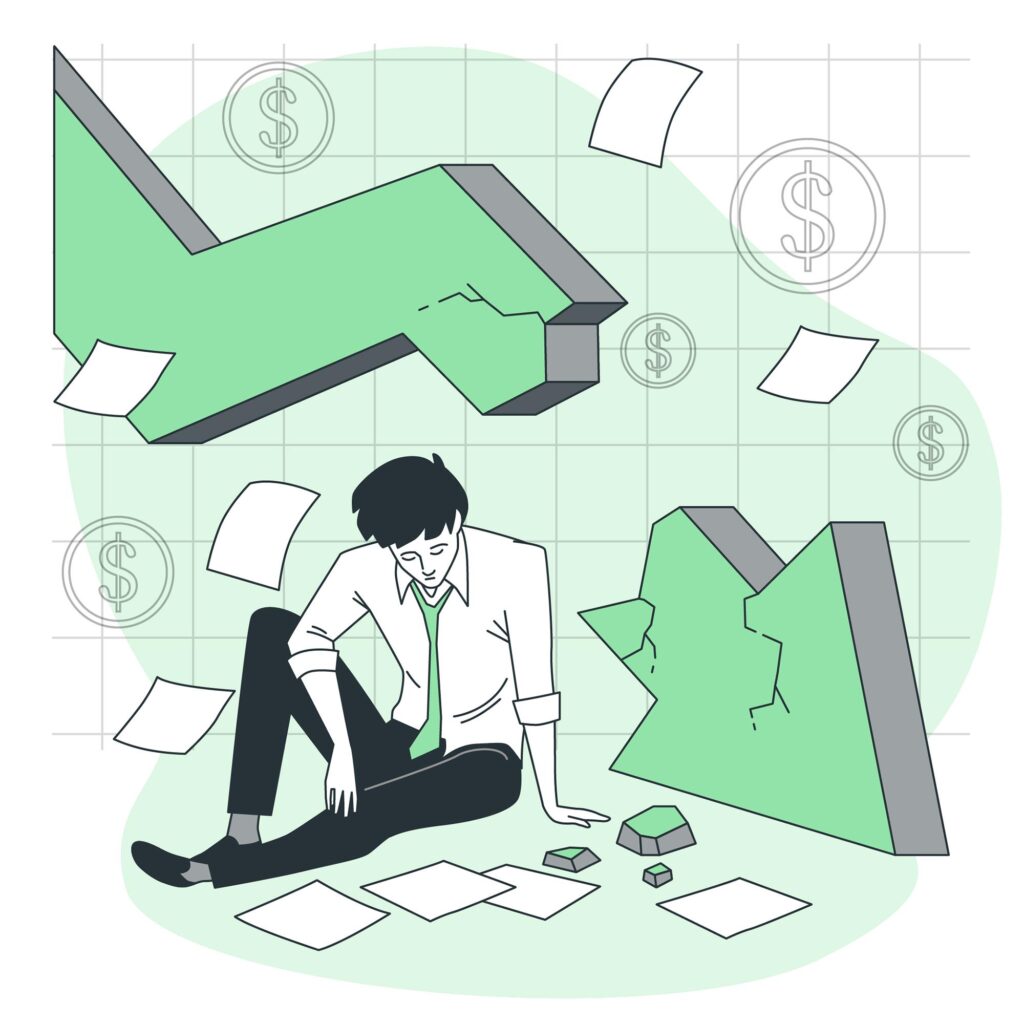Does Filing Bankruptcy on Your Business Affect Personal Credit?
Does Filing Bankruptcy on Your Business Affect Personal Credit?
Business bankruptcy can affect personal credit if you are doing business as a sole proprietor or have personally guaranteed business debts. However, your credit isn’t affected if your business is a separate legal entity, like an LLC or corporation, and you haven’t provided personal guarantees.
Let’s break it down in detail:
Filing Bankruptcy as a Business
Some business owners are personally responsible for their company’s debts, and whether or not a creditor reports a business debt on your credit report depends on the business structure.
A sole proprietorship offers no separation between the business and the owner. This means that you are personally liable for all business debts. If the business cannot pay, creditors can go after your personal assets.
If debts become overwhelming, filing for personal Chapter 7 or Chapter 13 bankruptcy may be necessary, though this can impact your credit for up to ten years.

In a general partnership, each partner is personally liable for the business’s debts. Creditors can report unpaid debt under any partner’s name, affecting personal credit scores. If a general partnership cannot repay its debts, partners may need to negotiate with creditors or file for personal bankruptcy.
However, filing for business bankruptcy does not always eliminate partner liability. If the business’s assets do not cover the full debt, creditors may still hold individual partners responsible.
Owners of limited partnerships (LPs), limited liability companies (LLCs), and corporations typically have limited liability, meaning their personal assets are protected from business debts.
These entities can file for bankruptcy independently; in most cases, the business’s financial troubles will not impact personal credit. However, if an owner has personally guaranteed business debts or has co-signed loans, those obligations may still appear on a personal credit report.
Short on time? Watch a quick explainer video instead 👇
FAQs
Does a business bankruptcy affect you personally?
A business bankruptcy can affect you personally depending on the business structure and whether you have personally guaranteed any debts.
- Sole proprietors are personally liable for all business debts, so a bankruptcy filing will appear on their personal credit report and impact their financial standing.
- General partners are also personally responsible for business debts, meaning creditors can pursue their personal assets even if the business files for bankruptcy.
- Limited liability companies (LLCs) and corporations typically shield owners from personal liability. If the business files for bankruptcy, it usually does not appear on the owner’s personal credit report unless the owner has personally guaranteed loans or used personal credit for business expenses.
Does business debt affect personal credit?
Business debt can affect personal credit in certain situations:
- If the business is a sole proprietorship or general partnership, the owner is personally liable for all debts, and any missed payments can be reported on their personal credit report.
- If an LLC or corporation takes on business debt without personal guarantees, it generally does not impact the owner’s individual credit. However, if the owner co-signs a loan or personally guarantees the debt, any missed payments or defaults can be reported on their personal credit history.
- Business credit cards and loans sometimes report to personal credit bureaus, depending on the lender’s policies.
What will I lose if I file bankruptcy?
The impact of bankruptcy depends on the type of bankruptcy filed and the assets owned:
- Chapter 7 bankruptcy involves liquidating non-exempt assets to pay off debts. If personal assets are not protected under bankruptcy exemption laws, they may be at risk.
- Chapter 13 bankruptcy allows individuals to restructure debt and create a repayment plan, letting them keep assets while repaying debts over time.
- Business bankruptcy for LLCs or corporations typically does not affect the owner’s personal assets unless they have personally guaranteed debts or misused company funds.
Does business credit look at personal credit?
Business credit checks often include a review of personal credit, particularly for small businesses and startups.
- Lenders often require personal credit checks for small business loans, credit cards, and financing, especially if the business is new or has no established credit history.
- If the business is structured as a sole proprietorship or general partnership, personal and business credit are often intertwined, meaning lenders will assess personal credit history before approving financing.
- Established LLCs and corporations with strong business credit histories may not require a personal credit check. However, lenders may still request a personal guarantee, linking the owner’s credit to the business.

